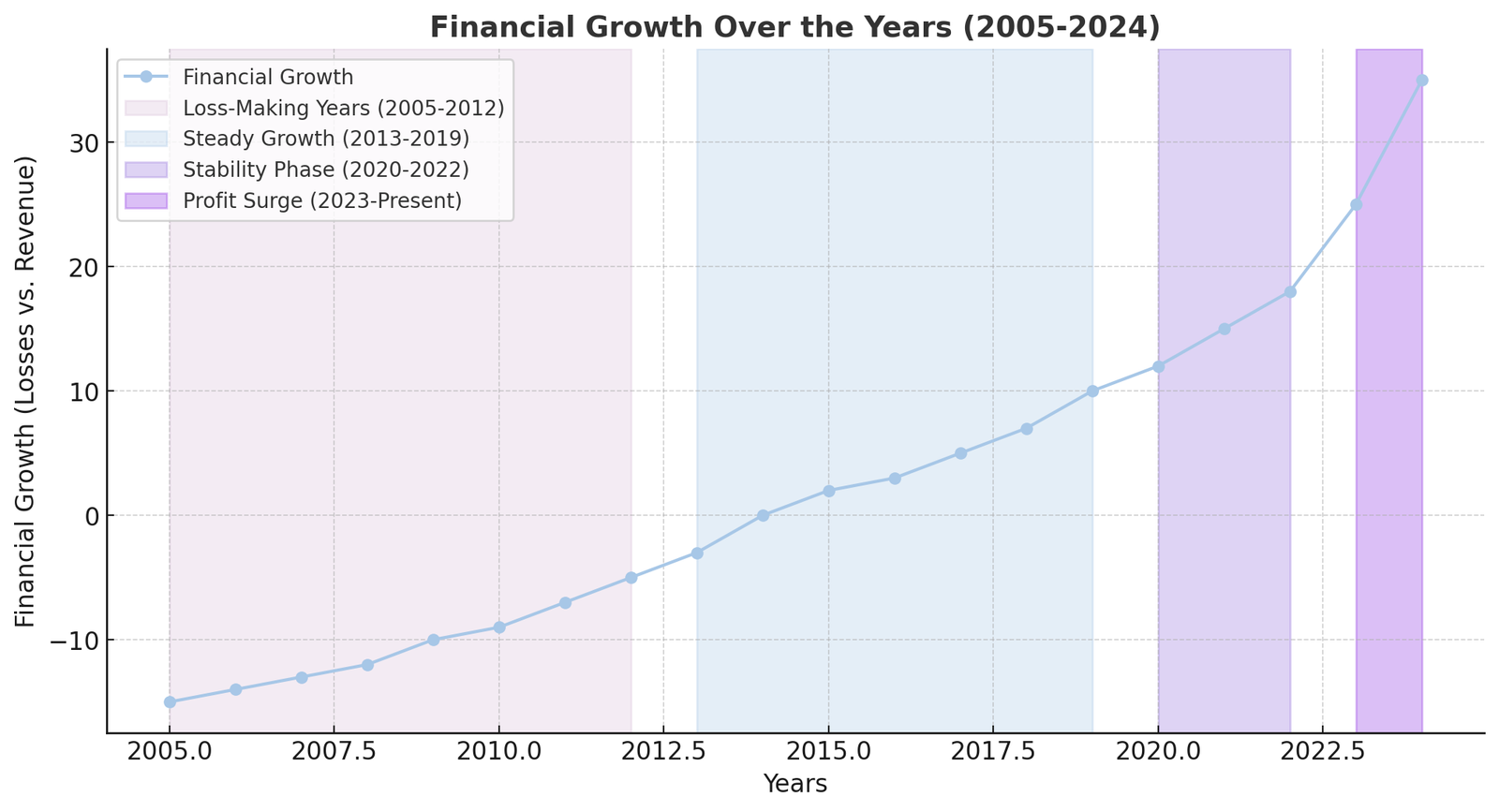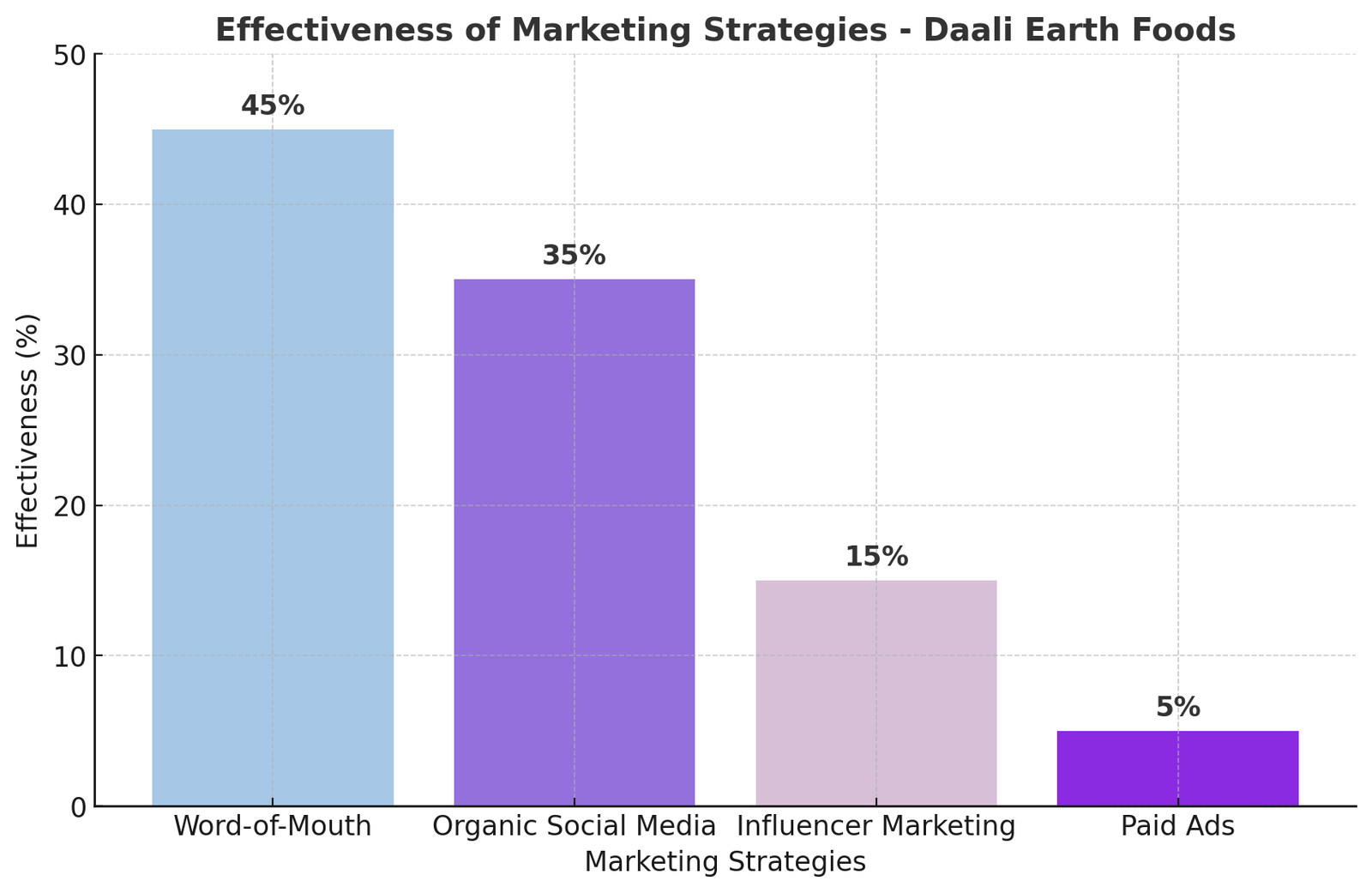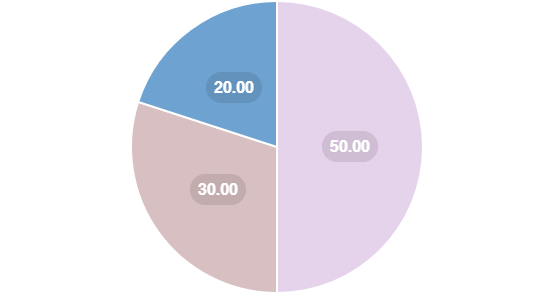A Vision Takes Root
"Sometimes, the greatest ventures don’t start with a grand vision; they start with an urgent need."
Maryam’s journey into entrepreneurship didn’t begin with spreadsheets or a business plan—it began with an unsettling realization.
As a mother, she wanted nothing more than to provide safe, healthy food for her children. But when she visited local mills to source wheat, what she found was alarming. Mercury and naphthalene balls—chemicals meant to ward off pests—were being used in the very food meant for consumption.
“I saw mercury being thrown into flour. I saw naphthalene balls dissolving into the wheat. I realized—I can’t trust anything I’m feeding my family.”
This moment wasn’t just a shock—it was a turning point. She knew she wasn’t the only mother facing this problem. If she needed pure, unadulterated food, others must too. And so, without a roadmap or industry experience, she made a decision: If the market couldn’t provide safe food, she would create it herself.
An Unexpected Beginning
With no background in business, Maryam turned to a friend, Samia Mumtaz, for support. Samia, who shared her concerns about food purity, became her first collaborator. The two started with the most fundamental ingredient in every home: flour.
"We weren’t setting out to build a brand. We just wanted clean food for ourselves and our families."
They located a small stone mill outside Lahore that would allow them to grind wheat without the harmful chemicals used in mass production. With no financial backing and no marketing strategy, they relied purely on word-of-mouth.
A Family-Backed Dream
Like many entrepreneurs in Pakistan, Maryam leaned on family and community support. Without investors or capital, she operated Daali Earth Foods from her home. Her children played in the background as she manually packaged flour and distributed it to friends and neighbors.
“We were filling bags of flour by hand in our kitchen. There were no labels, no branding—just trust.”
Soon, demand started to grow. Mothers in her community—who were also concerned about food safety—began placing regular orders. What had started as a personal necessity was slowly turning into a movement.
The First Big Break: Jalal Sons
Every business has a defining moment, and for Daali Earth Foods, it came when Maryam approached Jalal Sons, one of Lahore’s well-known grocery stores.
“I walked into Jalal Sons and said, ‘Just put it on the shelf. If it sells, we’ll talk.’ And it did.”
Unlike large retailers that demanded expensive shelf induction fees, Jalal Sons took a chance on Daali. The first batch sold out within days, proving that there was a real demand for clean, unprocessed food.
What began as a small operation in a kitchen had now taken its first step into mainstream retail. But the road ahead was anything but easy.
From Challenges to Breakthroughs
"In the middle of difficulty lies opportunity."
Every entrepreneur faces challenges, but it is often how these challenges are approached that defines the outcome. For Maryam, the road to building Daali Earth Foods was paved with obstacles—financial constraints, sourcing struggles, logistical hurdles, and the skepticism of the food industry. But with unwavering determination, an unshakable commitment to quality, and a deep sense of responsibility, she turned each of these hurdles into a stepping stone toward success.
1. Operating at a Loss for 7 Years
For nearly a decade, Daali Earth Foods operated at a loss. Without external investment or large-scale distribution, Maryam and Samia produced in small batches, prioritizing purity over profit.
“We weren’t making money—we were just making food we could trust.”
Family members advised Maryam to either cut costs or shut down, but she refused to compromise on ingredient quality or switch to mass production methods that could dilute the brand’s core promise. This financial pressure was immense, yet she remained steadfast, believing that the market would eventually recognize the value of real purity.
Key Points to Highlight:
2005-2012: Loss-making years due to high-quality sourcing costs.
2013-2019: Slow but steady revenue growth from expanding retail presence.
2020-2022: Maintaining stability, but limited visibility.
2023-Present: Social media adoption → Increased sales & customer awareness.

2. Overcoming Retail Barriers
Breaking into major supermarkets and grocery chains was nearly impossible for a small brand like Daali Earth Foods. Large retailers demanded high shelf induction fees, making it difficult for small organic brands to compete with industry giants.
Instead of relying on traditional distribution channels, Maryam took a bold step—she personally approached Jalal Sons, a store she frequented.
“I walked into Jalal Sons and said, ‘Just put it on the shelf. If it sells, we’ll talk.’ And it did.”
This store-by-store approach allowed Daali Earth Foods to grow organically, without sinking money into pay-to-play retail placements.
3. Maintaining Quality While Scaling
Scaling any business comes with the risk of compromising quality—especially in the food industry, where mass production can lead to ingredient substitutions and process shortcuts.
One of Daali’s biggest hurdles was finding suppliers who met the brand’s uncompromising standards. For instance, sourcing pure turmeric was a nightmare. Most available options contained arsenic or synthetic coloring, and suppliers often pushed back against rigorous testing demands.
“We rejected seven entire turmeric shipments before finally finding one that was arsenic-free.”
Rather than settling for subpar raw materials, Daali Earth Foods built an in-house testing system—an investment that increased costs but ensured consumer trust.
4. Logistical Challenges in Scaling Production
As demand increased, Daali Earth Foods faced significant logistical issues—from packaging and handling to ensuring product freshness in different cities. Expanding outside Lahore required a transportation system that could handle delicate organic food products.
“We had to reinvent how we packaged and stored our products. Every shipment was a learning experience.”
Maryam and her team rigorously tested packaging solutions and experimented with various handling techniques to ensure that their nutrient-rich stone-ground flour and spices remained fresh from production to the customer’s hands.
5. Financial Constraints and No Marketing Budget
Daali Earth Foods was entirely self-funded, which meant that every expense had to be carefully calculated. With no capital for aggressive marketing or paid advertisements, Maryam had to rely on word-of-mouth and organic reach.
“For years, our only marketing strategy was the quality of our product.”
Daali Earth Foods grew slowly, but with a loyal customer base that believed in the brand. This trust-based approach proved to be more valuable than any ad campaign.
Stats to Include:
Word-of-Mouth: 45% of total customer acquisition
Organic Social Media: 35% of impact after 2023 digital expansion
Influencer Marketing: 15% contribution to sales growth
Paid Ads: Only 5% effectiveness, proving limited ROI

6. Resisting Social Media for Nearly Two Decades
Maryam’s traditional mindset initially made her skeptical of social media. She believed that great products didn’t need marketing gimmicks—customers would recognize quality on their own. But as digital commerce grew, her daughter insisted that the brand needed an online presence.
“I thought social media was all fluff. I didn’t realize that it was where people went to discover and trust brands.”
When Daali finally launched its Instagram and online sales in 2023, the brand’s reach exploded. Customers who had been buying from local stores for years suddenly had an emotional connection to the founder’s story, leading to increased demand across retail outlets.
Scaling Daali Earth Foods: Three Key Growth Drivers
"Growth is never by mere chance; it is the result of forces working together."
As Daali Earth Foods gained momentum, Maryam recognized that expanding successfully required more than just increasing production. She focused on three core growth drivers—organic expansion, authenticity, and digital transformation—each of which played a crucial role in scaling the business while maintaining its founding values.
1. Strengthening Customer Loyalty Through Trust and Transparency
From the beginning, Maryam understood that customers weren’t just buying food—they were buying trust. Unlike mass-market brands that relied on heavy advertising, Daali Earth Foods built its customer base through transparency, word-of-mouth, and an unwavering commitment to quality.
"If I wouldn’t serve it to my family, I won’t sell it. That has always been my guiding principle."
To deepen customer relationships, Daali prioritized educating buyers on food purity. Maryam regularly shared behind-the-scenes insights—from sourcing to testing—creating a brand narrative rooted in integrity.
This authenticity became Daali’s strongest competitive edge. In a food industry often plagued by mistrust, Daali stood apart as a customer-first brand, earning repeat business and long-term loyalty.
2. Strategic Retail Expansion: Growing Store by Store
Daali Earth Foods took an unconventional approach to retail growth. Rather than entering big-box supermarkets immediately, Maryam focused on strategic partnerships with trusted retail stores, ensuring that quality control remained a priority.
"We didn’t want to be everywhere all at once—we wanted to be where we mattered."
By gradually expanding into Alphata, Jalal Sons, and 300+ other stores, Daali built a strong local presence before considering broader distribution. This measured approach allowed them to scale production without sacrificing quality.
Furthermore, Daali avoided high induction fees that often act as barriers for small brands. Instead of paying for shelf space, the company leveraged organic demand—convincing retailers to stock Daali based on its proven customer traction.
A pie chart showing the current retail distribution breakdown
This section highlights Daali’s partnerships with Jalal Sons, Alphata, and other stores.
A pie chart can show the percentage breakdown of sales across different retail partners (e.g., Alphata 50%, Jalal Sons 30%, other stores 20%).

3. Digital Transformation & Social Commerce
Despite initial resistance to digital marketing, Maryam’s daughter successfully introduced Daali to social media in 2023—a move that became a game-changer for the brand.
"We started with a tiny budget, but the results were undeniable. Customers were engaging, stores were noticing, and sales were climbing."
Through Instagram and online outreach, Daali tapped into a new wave of conscious consumers—millennials and Gen Z buyers who valued authenticity, local sourcing, and health-conscious choices. Within months, digital engagement translated into increased in-store demand, proving that brand visibility directly influenced purchasing behavior.
By combining physical retail with digital presence, Daali Earth Foods successfully bridged the gap between traditional grocery shoppers and modern online consumers, setting the stage for long-term, sustainable growth.
Transforming Challenges into Lasting Success
"The greatest lessons in business are often learned through persistence, not perfection."
As Daali Earth Foods grew from a home-based initiative to a recognized organic brand, the lessons Maryam gathered along the way became as valuable as the business itself. Her journey highlights the power of purpose-driven entrepreneurship, showing how resilience, authenticity, and adaptability shape long-term success.
1. Innovation Through Necessity
Many entrepreneurs wait for the right resources before taking action—Maryam proved that uncertainty breeds creativity. Without an established roadmap, she relied on instinct, problem-solving, and trial-and-error to build her brand.
"I didn’t start with answers—I started with questions. How do I ensure purity? How do I scale without compromising quality? Finding solutions became my growth strategy."
Her willingness to adapt and experiment ensured that every challenge was met with a breakthrough, not a breakdown.
2. The Power of Trust and Transparency
One of the biggest lessons from Daali Earth Foods’ journey is that trust is the real currency of business. In an industry where food quality is often compromised for profit, Maryam’s unwavering commitment to transparency set her apart.
"Consumers don’t just buy products—they buy trust. Our brand wasn’t built on ads, it was built on honesty."
By educating customers on food purity, maintaining rigorous quality control, and rejecting suppliers who failed to meet standards, Daali earned customer loyalty that money can’t buy.
3. Scaling Without Losing Soul
Growth can often dilute a company’s core values, but Daali Earth Foods proved that expansion doesn’t have to come at the cost of authenticity. By scaling organically—one trusted retailer at a time—they ensured that every decision aligned with their mission.
"We grew slow, but we grew right. Every store, every customer, every product was added with care."
This patient, measured approach not only secured long-term sustainability but also protected the brand from the common pitfalls of overexpansion.
4. Digital Transformation is Inevitable
For years, Maryam resisted digital marketing, believing that quality alone would drive business. However, once her daughter introduced social media, Daali’s growth accelerated dramatically.
"I underestimated the power of digital storytelling. When we shared our journey, our customers connected with us in ways I never imagined."
This shift underscored a vital lesson: even traditional businesses must evolve with the times. Visibility fuels growth, and in today’s world, digital presence is non-negotiable.
What This Story Teaches Us
Maryam’s journey with Daali Earth Foods is a testament to the idea that true success is built on unwavering values, resilience, and community trust. Much like a tree growing in uncertain terrain, Daali Earth Foods drew its strength from a deep-rooted commitment to quality, trust, and authenticity.
At its inception, the business was nourished by a belief in purity, a commitment to solving a problem, and an entrepreneurial spirit that thrived on uncertainty. As the brand evolved, it extended its branches—leveraging customer relationships, trust-based retail partnerships, and eventually digital engagement to scale its impact.
This story underscores a critical lesson: business success is not merely a function of financial capital but of social capital—the trust and support that businesses build with their consumers, suppliers, and communities.
In markets where food safety remains a concern, Daali Earth Foods proved that integrity and transparency are not just marketing buzzwords—they are the foundation of lasting customer loyalty. The company’s ability to scale without compromising quality stands as a powerful example for entrepreneurs navigating industries where cutting corners is the norm.
The broader takeaway from Maryam’s journey is that entrepreneurial success is not about rapid growth or quick wins—it’s about long-term impact. By staying true to its core values, Daali Earth Foods has not only created a sustainable business but also inspired a movement toward healthier food choices.
For entrepreneurs, this case study serves as a reminder that trust is the most valuable asset. It cannot be bought—it must be earned, nurtured, and upheld through every decision, every product, and every interaction with customers.
The story of Daali Earth Foods teaches us that businesses rooted in purpose, authenticity, and resilience will not only survive but thrive—even in the most challenging environments.

